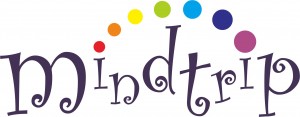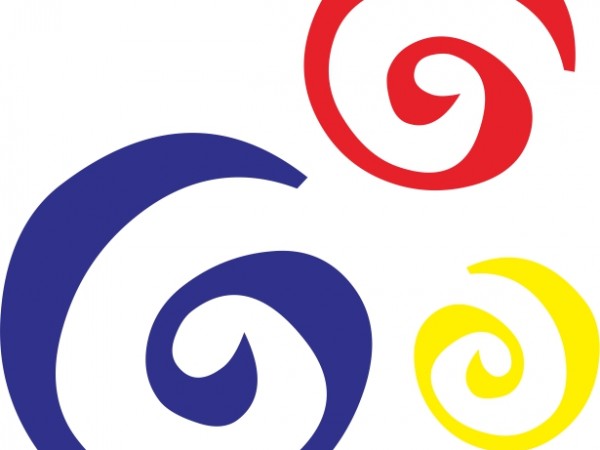Posts from the ‘Psychometric tools’ Category
Your emotions count!
“If you experience a healthy dose of positivity and you can sustain it, it can also empower and energize you to deal with adversity in a more constructive way. In that sense, resilience and a positive outlook are highly intertwined. If we cultivate our ability to sustain positivity, we are simultaneously cultivating our ability to bounce back from negativity.”
-Pelin Kesebir ( Centre for Healthy minds)
Latest research from the centre of healthy minds run by Richard Davidson builds on his fascinating book the emotional life of your brain. In the book he talks about the links between our emotions (our affect) and our wellbeing. Much of mainstream mindfulness focuses more towards the focus element of mindfulness and our ability to manage our attention. What I love about Richie Davidson’s work is that it focuses on our emotions too and importantly the study of what sustains psychological wellbeing rather than purely focusing on disorders and when things go wrong.
Working as an executive coach and an organisational development consultant these questions come up again and again. What do we value? What does success look like? How come what I used to love I don’t anymore- what next? What type of success drives me and why…Where should we be as a business? Why? How can we stop falling out as a team? How can I raise staff wellbeing?
In our lives and work we are driven innately by what we value and the social context of what is around us. We may also be being influenced by our bodies’ and minds’ automatic wiring, pushing us towards and away from things and people that we desire and avoid. We react, make decisions and lead our lives by these implicit rules and behaviours. This is us on automatic pilot– our own personal intelligence that helps and guides us through life, so that we don’t have to stop and think every second to appraise what might be best.
It is a complex web and who you talk to will focus on a different element of that web- driven by what is important or makes sense to them. Very simply, social psychologists and behavioural scientists may tell you that actually you have little agency and that your behaviour is determined by the context that you work and live within- social comparison and a desire to belong within groups being at play. Other specialisms of psychology will focus perhaps more on the individual level, your own personality perhaps, or common themes among people seeking out life satisfaction. Philosophers will come again at another angle exploring how do we know what is important to us? Challenging us to think about what matters and what doesn’t and why.
So I invite you to consider a couple of things:
You may in fact be being driven by your social context and not actually what makes you happy…do your really want that degree, get married, promotion etc For a challenging look at these social memes that may be guiding you I invite you to read Paul Dolan’s latest book and have a look at this MOOC
Have you stopped to consider what really matters to you? What are your personal indicators for a good life? The fields of positive psychology and wellbeing try and measure this area using indicators such as satisfaction with life and psychological wellbeing. Looking at your own personal balance between eudaimonia (flourishing/fulfilling our potential) or what is purposeful to us and what makes us feel happy in the moment -our own personal pleasure (with thanks to Paul Dolan).
For some of us that are in the lucky position to have moved beyond pure survival, pleasure may be our key driver for others success and a good life is more about realising our potential, learning, growing and challenging ourselves. What is your balance? To explore this further I invite you to start being your own personal investigator- noticing in the moment when you feel good and not so good- is it when your ‘think’ you ‘should’ feel good, perhaps having a go at this self test for a few days. If you are struggling with a lack or purpose or meaning have a go at the test above and reflect on what is really important to you in your life? What challenge, change, learning or area of growth would bring you more fulfilment and/or what contexts (hobbies, workplace, communities) would support and enable this?
Interested in exploring this further both individually or as an organisation? Drop me a line hello@mindtrip.co.uk
Wellbeing at Work Survey for both Individuals, Teams and Organisations
January 15th, 2013
Heather Johnston
Update: This survey has now been phased out. I do have a number of other surveys I use please do contact me to find out more.
At the end of last year, to further develop my services to sustain wellbeing within organisations in these current tough times, I attended a Masterclass with Nic Marks on a new Wellbeing at Work survey. Nic is known for his great work on wellbeing and developing the happy planet index
The survey is available to individuals and small teams (up to 5) and for a small cost of £6 per head (plus VAT) an organisation/team can survey its staff and gets results broken down by their own chosen demographics. Larger organisations will be able to take advantage of lowering marginal costs per user if they choose to survey the whole organisation. Small organisations can for the first time have a state of the art staff survey at an exceptionally reasonable cost.
The survey is based on a dynamic model of wellbeing developed with leading experts and is uniquely grounded in the latest psychological findings around wellbeing and happiness. Each question has been carefully selected to reflect what the evidence says impacts well-being at work and has been tested with thousands of respondents.
The wellbeing survey results give a more complete picture of employees’ experience than standard engagement surveys as it includes engagement and stress but also employees’ positive emotional experiences. For Chief Executives, Directors and HR departments the results can be compared between teams or by other demographics and the results act as a “mirror” reflecting back what is happening within the organisation and help people to have insights on how work could be happier.
What I like about the survey is that it provides instant individual as well as organisational results for real-time feedback, provides a simple interface presenting results in traffic light colours and has National benchmarks automatically built into the questions, providing individuals, teams and organisations with an anchor point to understand and compare scores. The survey can also be repeated over time to measure any change. To find out more have a look at the survey website
If you are interested in taking a temperature check of your organisation or team and are committed to some follow up action I believe this is a great tool to open up some very important discussions around sustaining and improving happiness at work. As research shows happier employees are more productive, healthier and creative and are more loyal and provide better customer service to clients. A win-win!
Please get in touch if you would like to find out more!
 Roger Steare and Pavlos Stamboulides have been researching for a number of years our ethicability-particularly pertinent in these current times: ‘ how we decide what is right and finding the courage to do it’ .
Roger Steare and Pavlos Stamboulides have been researching for a number of years our ethicability-particularly pertinent in these current times: ‘ how we decide what is right and finding the courage to do it’ .
So what are our moral values? How do they influence the decisions you make day to day both within and outside of work and how do they particularly influence you in Transitions in your life…? Are you acting with Integrity, being Authentic? Understanding more about your moral values and what drives you can help you to understand more about the tough dilemmas (and why you are finding them tough) you are facing in both your personal and work life. Once understood it can then give you a springboard for thinking about how best you deal with these conflicts of interest you face on a daily basis.
If you want to find out more, they have just launched a free revised version of their ethicability moral DNA profile. MoralDNA™ is a personality test which reveals our moral values and the way we prefer to make decisions about what’s right. Check it out at: www.moraldna.org
When you complete your profile, you will receive a PDF report that describes your character type. This could be Philosopher, Judge, Angel, Teacher, Enforcer or Guardian. You will see how you score against the average for human beings on three scales that measure how we prefer to do the right thing, both at work, and in our personal lives. You will also see how you compare with others on 10 moral values including Love, Fairness and Wisdom.
One of the keys to change is developing self awareness. Once you understand more about your motivations, personality, skills and strengths it can help you to move towards your goals but also help in understanding others. From an organisational and team perspective, I have found that raised awareness through the use of such instruments, can bring understanding and greater tolerance and a reduction in conflict.
Personality Inventories and Self awareness tools
I am level B accredited practitioner with the British Psychological Society in a number of well known personality inventories such as the MBTI and FIRO-B and am qualified in two specialised Leadership and strengths based inventories that are detailed below. I also use many other available instruments that are well reviewed and evidence based such as the Big 5 personality instrument and I also use extensively various positive psychology specialised inventories including personal resilience, emotional intelligence, satisfaction with life and self esteem instruments.
Leadership Development
The Leadership Development Framework describes sequential stages of development (Action Logics) through which adults may progress during their lifespan. Crucially, different leadership capabilities are evident at each successive Action Logic – leadership transforms with each step. Extensively researched and validated, it describes what promotes and impedes development to each successive stage.
I am fully qualified practitioner in the Leadership Development Profile. The Leadership Development Profile reveals the action logic of a leader and we can then use it to build a personal developmental agenda. Knowing your own current ‘action logic’ opens up two possibilities: on the one hand, you may decide that consolidating your behaviours and capabilities at your current stage would be of greatest value to you and your organisation. On the other, you may be interested in creating the potential for transformational change to a new stage.
Your Strengths
I am accredited in this world-leading strengths assessment and development tool which has been taken by 40,000+ people around the world. It assesses 60 strengths according to the three dimensions of energy, performance and use, making it truly unique and distinct from the typical one-dimensional strengths test. These three dimensions are then used to identify where your strengths lie. The report gives you a unique insight into your strengths and weaknesses, helps you distinguish your strengths from your learned behaviours, provides you with a strengths language that enables you to share your strengths with others and helps you think about how to use your strengths to achieve your goals.
Organisational instruments
I often find taking a benchmark of where we are is a useful segway into Organisational Development work and have used happiness at work surveys as well as my own team based surveys and reviews to create a benchmark. I am also well versed on organisational people surveys and can facilitate sessions that bring these to life to create forward momentum.




